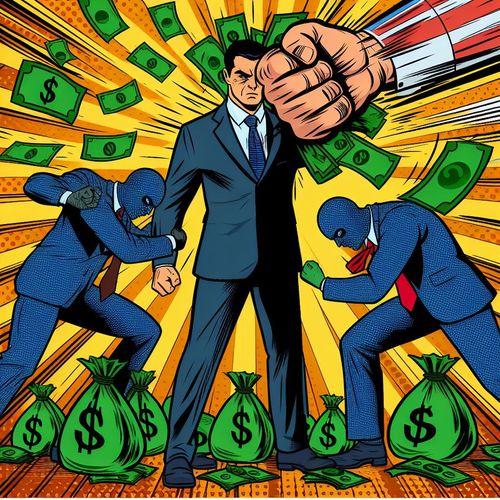Like many who invest, I have made my fair share of mistakes. In the process, I have picked up some hard-earned wisdom about decision making I wish I embraced earlier. While I have realized some gains, there were also painful losses that likely could have been avoided if I approached choices more thoughtfully. After gaining greater clarity about my own tendencies through market ups and downs, here are the personal guidelines I refer back to when facing uncertainty as an investor.
Recognize and Embrace Uncertainty
Early wins initially gave me an overinflated sense of predictive ability. I have since realized just how little I can truly know about the future. Rather than viewing uncertainty as a weakness, I work to appreciate it. Just like any skill, excelling at investing includes acknowledging current limitations to enable growth. I consciously imagine various scenarios that could unfold when assessing opportunities.
Judge Decisions, Not Just Outcomes
Outcomes naturally embed a high degree of randomness within investing. Consequently, results themselves reveal little about the quality of my choices. I think back to times when a risky, undiversified bet paid off. Was that genuinely skill or just a consequence of fortunate timing? Strong past returns do not always reflect wisdom. To improve my process, I try and consciously consider alternate histories after decisions — what else could have plausibly happened based on the facts at the time?
Assign Percentage Odds to Beliefs Thoughtfully
While I cannot actually predict the future, putting percentage odds on my opinions helps clarify my thinking and identify when others disagree. For example, I may believe there is a 65% chance a certain investment will increase in value. Someone else may see it as only 35% likely. Quantifying beliefs makes it easier to recognize gaps like this.
I still acknowledge these percentages represent guesses rather than hard facts or scientific calculations. They do not make my opinions inherently accurate or truly mathematical. However, assigning a degree of certainty I hold enables more weighted consideration of different scenarios.
Leverage External Opinions to Overcome Biases
My individual perspective is limited. I have personally experienced how easy it is to grow stubbornly attached to an existing viewpoint. This innate tendency for confirmation bias makes incorporating trusted outside opinions invaluable. My process now starts with formulating a hypothesis before then having conversations to stress test my logic.
I am fortunate to have many extremely smart friends. In fact, one of the main reasons I write this newsletter is to share my views with them and receive their feedback — either in support or against my thinking.
Identifying gaps between how I see things and how others evaluate the same situation leads me to the most balanced conclusions.
Mitigate Against Risks of Ruin
When assessing an investment's potential, the average expected return fails to tell the full story. Even if a situation looks lucrative over many scenarios, a single severe loss could still outweigh all those gains. (LUNA 😭)
Before over-allocating to a tempting opportunity, I now consider nightmare outcomes that could wipe me out altogether. If the potential damage from a low probability disaster remains intolerable, extra precaution is warranted through limiting position sizes, setting stop losses, or hedging risks.
Consider Extreme Scenarios
Uncertainty means more outcomes are possible than will actually occur. So while most of the time events follow somewhat predictable patterns, occasionally unthinkable scenarios emerge. Black swans and unprecedented market shocks highlight limitations in preparing for the unknown unknowns. Accounting for this reality, I frame past crises and catastrophic drops as closer to the norm than the exception when conducting downside scenario analysis.
Navigating decisions under uncertainty will always be characterized by some degree of chaos and randomness. But thoughtfully addressing assumptions, avoiding risks of ruin, and leveraging external opinions can help me make better choices despite my innate human limitations.

